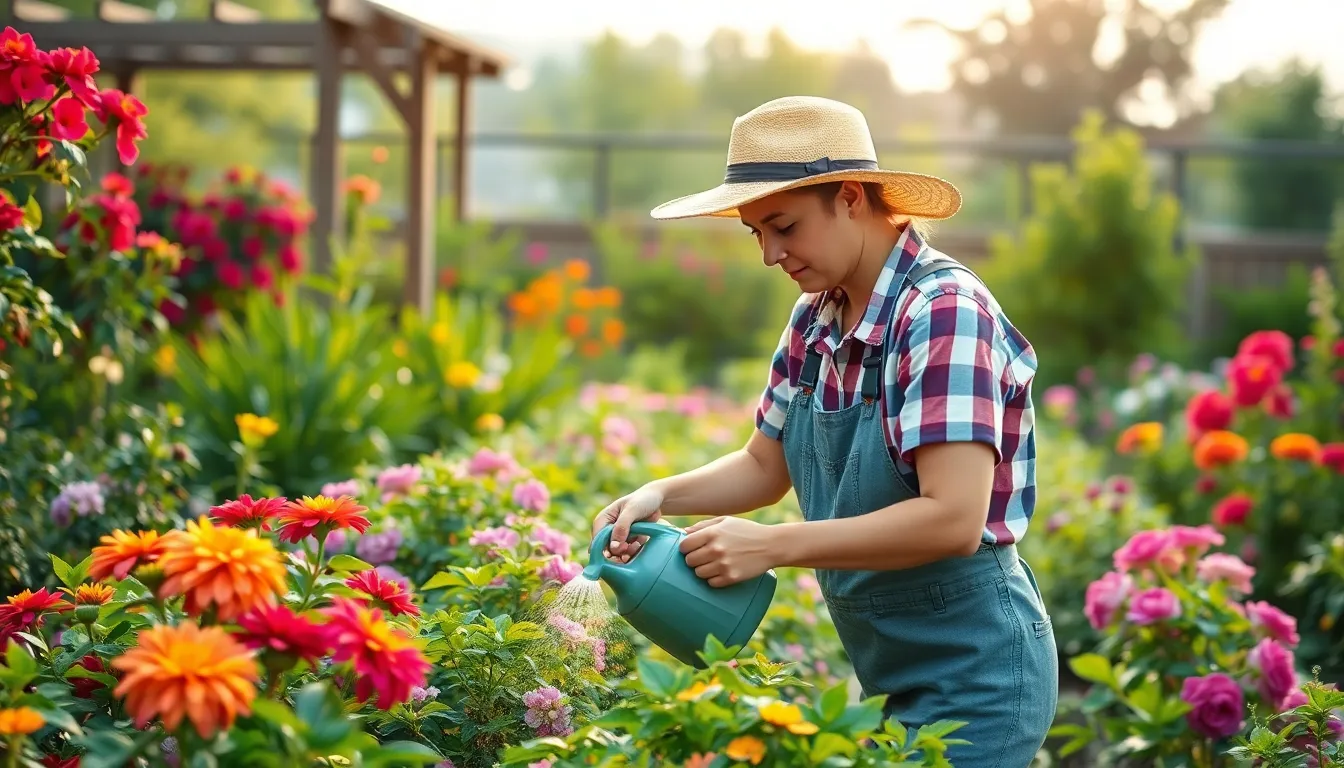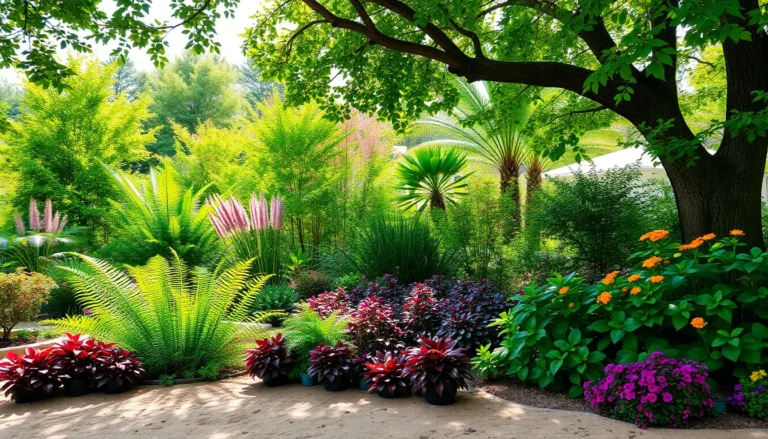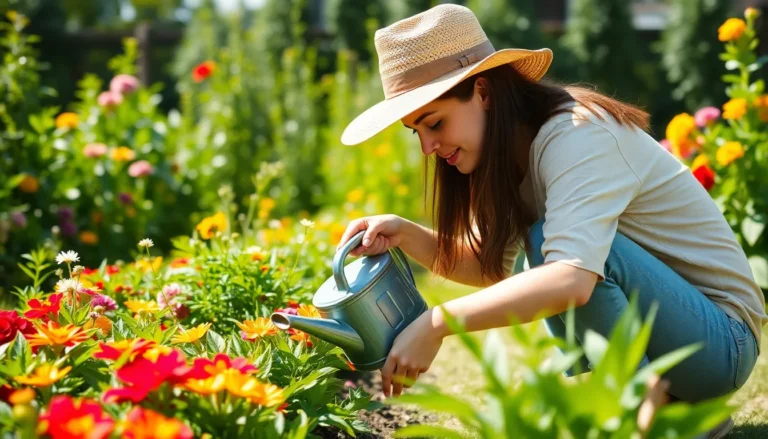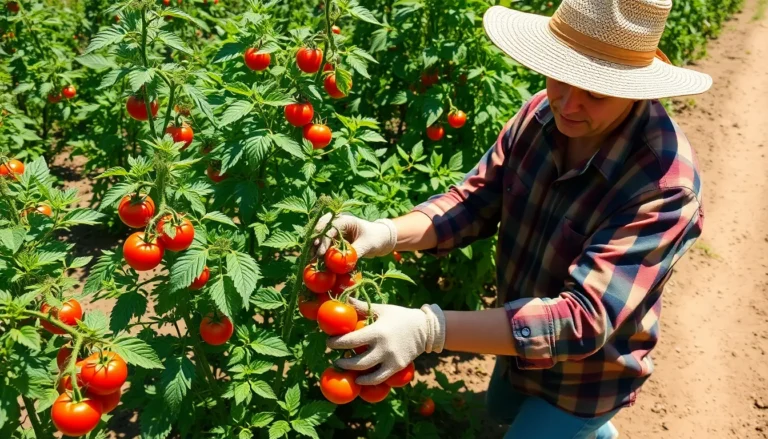
Is It Better to Water Plants in the Morning or Evening? Discover the Best Time
When it comes to watering plants, the age-old debate rages on: morning or evening? Imagine your plants sipping their morning coffee while basking in the sun, or winding down with a refreshing drink after a long day. It sounds like a plant party, but the truth is, the timing can make all the difference in keeping those green beauties thriving.
Is It Better to Water Plants in the Morning or Evening?
Watering plants at specific times affects their growth and health. Morning watering allows plants to absorb moisture before the heat of the day. This practice reduces evaporation rates, ensuring better water retention in the soil.
Evening watering presents its own benefits. It allows moisture to stay in the soil overnight, helping plants hydrate during cooler temperatures. However, this method can lead to issues like fungal growth if leaves remain wet for extended periods.
The type of plant also influences the best watering time. Some plants prefer morning sips, thriving in the sunlight, while others may benefit from evening hydration when temperatures drop.
In regions with high humidity, morning watering is often preferable. It minimizes the risk of disease and ensures that water reaches the roots efficiently. Conversely, in arid climates, evening watering helps retain moisture longer.
Weather plays a crucial role in determining the ideal watering time. Hot, dry days may necessitate watering in the morning to combat midday heat stress. Conversely, milder evenings can be sufficient for proper hydration without excessive evaporation.
Ultimately, understanding individual plant needs and local weather conditions helps gardeners choose the best watering time. Observing plant responses can provide insight into their preferences for optimum health and growth.
Benefits of Morning Watering

Morning watering offers numerous advantages for plant health. Plants receive sufficient moisture before the day’s heat sets in, promoting optimal growth.
Optimal Temperature for Plants
Cooler morning temperatures create ideal conditions for plants to absorb water effectively. As the sun rises, evaporation rates remain low, allowing moisture to penetrate the soil. The roots take in water without excessive stress, enhancing nutrient uptake. This practice keeps plants hydrated throughout the day, improving resilience against heat stress.
Reduced Evaporation Rates
Watering in the morning significantly reduces evaporation rates. During the afternoon, higher temperatures cause water to evaporate quickly, leading to less effective hydration. Morning watering, therefore, ensures more water reaches the roots rather than disappearing into the atmosphere. A well-hydrated plant exhibits better growth and vitality, making morning watering a preferred choice for effective plant care.
Advantages of Evening Watering
Evening watering offers unique benefits that enhance plant health while optimizing moisture management.
Moisture Retention Overnight
Watering in the evening allows soil to retain moisture longer. Cooler nighttime temperatures reduce evaporation rates significantly. Plants absorb water at a slower pace overnight, ensuring a steady supply. Soil moisture remains accessible, promoting optimal nutrient uptake. This method proves particularly effective in arid climates where water conservation is critical.
Prevention of Leaf Burn
Watering plants during the evening helps prevent leaf burn caused by intense sunlight. When water droplets sit on leaves in the hot sun, they can act like magnifying glasses, focusing sunlight and increasing leaf temperature. Evening watering avoids this issue, reducing the risk of damage. Healthy foliage benefits from cooler, shaded conditions that promote better hydration. This practice supports overall plant vitality, allowing for robust growth and resilience.
Factors to Consider
The optimal time for watering plants hinges on various factors, including plant type and climate conditions. Understanding these elements can significantly influence plant health.
Type of Plant
Different plants exhibit unique watering needs. For example, succulents and cacti thrive with minimal moisture, making infrequent watering acceptable. Conversely, tropical plants flourish with consistent moisture; morning watering keeps their roots hydrated before midday heat. Some flowering plants benefit from evening watering, as it aids in nutrient absorption without the risk of leaf burn. Ultimately, acknowledging plant-specific requirements leads to effective watering schedules, enhancing growth and vitality.
Climate Conditions
Climate significantly influences watering timing. In humid regions, morning watering is preferable to reduce fungal diseases brought on by moisture lingering on leaves overnight. Areas with arid climates benefit from evening watering, as cooler temperatures help retain soil moisture longer. In hot climates, early morning irrigation combats heat stress and ensures maximum water absorption by plants. Each region’s weather conditions dictate the best practices for maintaining plant health, making awareness essential.
Conclusion
Choosing the right time to water plants is crucial for their health and growth. Morning watering generally offers the best conditions for moisture absorption and helps prevent heat stress during the day. On the other hand, evening watering can be advantageous in arid climates, allowing soil to retain moisture longer.
Ultimately, understanding individual plant needs and considering local climate conditions will guide gardeners in making the best decision. Whether opting for morning or evening watering, the goal remains the same: to provide plants with the optimal environment for thriving. By tailoring watering practices to specific situations, gardeners can enhance the vitality and resilience of their plants.



